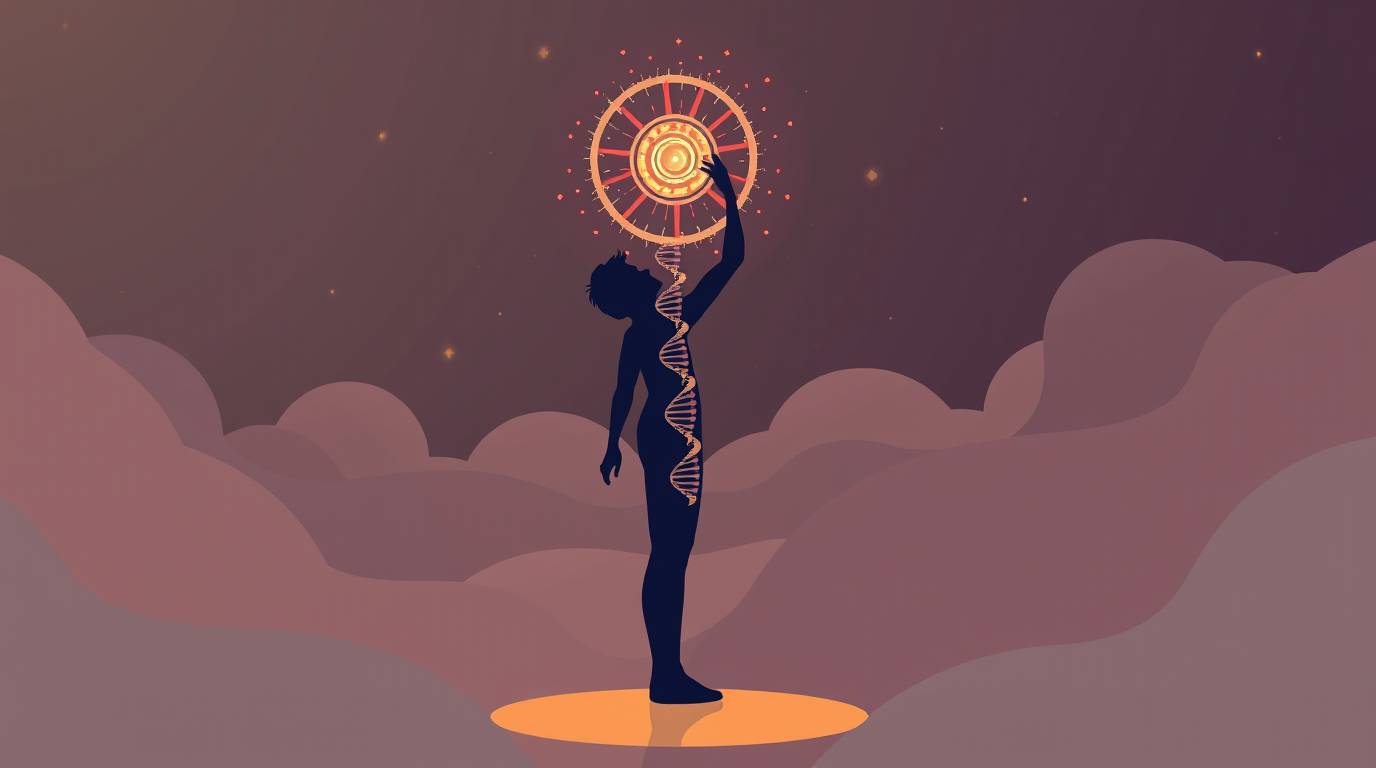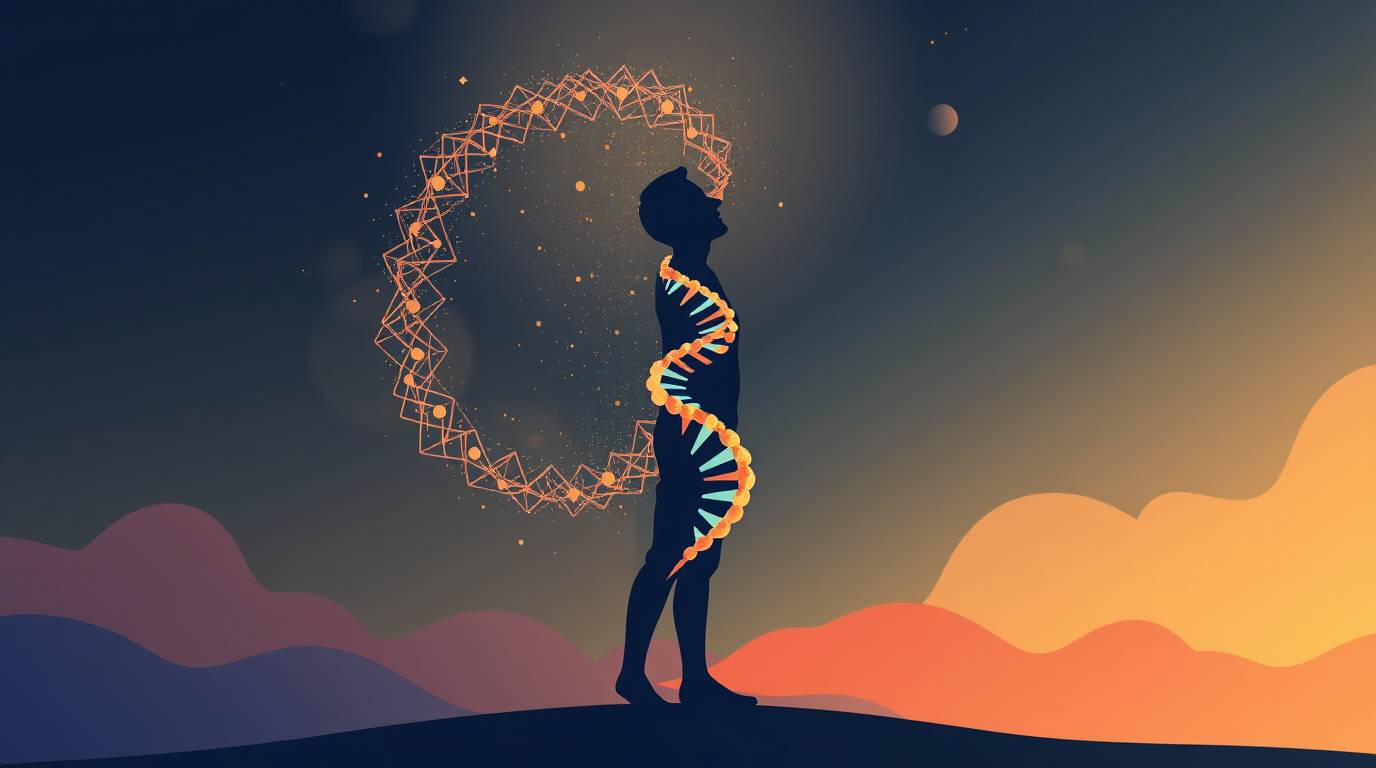If you would like to listen to this text in audio format, visit my channel on the Patreon platform. The link to the audio recording is HERE.
***
Readers of “59 plus” are often startled by its most provocative assertion: far from fading away, certain human capacities actually flourish and expand beyond age sixty. This notion challenges our cultural assumptions about aging. After all, conventional wisdom paints later life as an inevitable downward trajectory—a time when both body and mind gradually surrender their powers.
Yet 59 plus presents a radical proposition: just as toddlers cannot walk until their legs develop the necessary strength, and adolescents cannot experience sexuality until puberty completes its work, certain human capacities remain dormant until our seventh decade unfolds.
This assertion—that our developmental timeline extends far beyond youth—challenges fundamental assumptions about human biology. We confidently map the arc of physical maturation from infancy through adolescence, but have we been premature in declaring its completion? What if our understanding of biological development has been artificially truncated, blind to the subtle metamorphoses awaiting us in later life?
Among the revelations in 59 plus is a startling concept: “quantum empathy”—a profound emotional capacity that typically remains dormant until our seventh decade. The book further challenges convention by suggesting our cognitive powers actually expand after sixty, as we finally shed the mental frameworks imposed throughout our lives. Such assertions directly contradict our cultural mythology that innovation belongs exclusively to the young. At first glance, these claims might appear to be mere wishful thinking—comforting fictions we tell ourselves about aging. Yet what if our dismissal is premature?

In October 2025, the Intelligence journal published findings that upend our understanding of cognitive development. The Australian research team, under Professor Gilles Gignac at UWA’s School of Psychological Science, created a comprehensive psychological index that tracks mental capacity across the lifespan. Their data reveals a surprising trajectory: our mental faculties actually strengthen through middle age, reaching their fullest expression between 55-60 years, only then beginning a gentle descent that accelerates after 75.
This research reveals a counterintuitive truth: when faced with complex decisions, leadership challenges, or emotionally charged situations, individuals in their sixth and seventh decades frequently demonstrate superior outcomes compared to those in their twenties and thirties. While conventional wisdom celebrates the apparent speed of younger cognition, Professor Gignac’s findings suggest this advantage may be illusory when measured against the deeper capacities that flourish only with time.
There are additional details:
Conscientiousness usually peaks around the age of 65.
Emotional stability peaks around age 75.
Moral judgment and the ability to resist cognitive biases may continue to improve into the 70s and 80s.
These findings align with ancient Jyotish wisdom about Saturn transits, suggesting our third life cycle—from our sixties through our nineties—may actually represent a period of continued growth rather than inevitable decline.
What makes this research particularly compelling is that it contradicts our cultural expectations, even as it studies individuals fully immersed in those same limiting beliefs. One can only wonder what untapped potential might emerge if we collectively reimagined this life stage. Should we shed our preconceptions about aging, I believe we would witness the blossoming of capacities currently beyond our imagination—latent abilities awaiting only our permission to flourish.
Let me elaborate on the concept of quantum empathy, which features prominently in my work. Current research reveals a fascinating pattern: while our intellectual ability to understand others’ perspectives may slightly diminish with age, our capacity for genuine sympathy and our motivation to act compassionately actually strengthen over time. This suggests a profound shift—the analytical mind steps back as the heart steps forward. Quantum empathy—a term unfamiliar to contemporary researchers—represents the culmination of this developmental journey. If we conceptualize empathy as evolving from cognitive understanding to emotional resonance and finally to what I call “complete empathy,” it follows that this most sophisticated form would emerge latest in our developmental timeline, flowering entirely only as we enter our eighth decade.

Another dimension explored in 59 plus concerns the relationship between consciousness development and biological changes in our endocrine system—particularly the pineal gland, long considered the biological seat of transcendent awareness. While conventional science documents an apparent decline in these systems after sixty (pineal calcification and disrupted melatonin cycles that compromise sleep quality), emerging research challenges this narrative. These changes, once considered inevitable aspects of aging, now appear to be malleable responses to environmental and lifestyle factors—suggesting that what we’ve labeled “natural aging” may instead be optional deterioration.
We can also prevent what many consider inevitable hormonal shifts of aging. Consider the parathyroid: rather than accepting diminished bone density and vitamin D synthesis as unavoidable, evidence suggests we can stimulate increased parathyroid hormone production well into our later decades. Similarly, research indicates that the aging adrenal system often develops an enhanced cortisol response—not a deficiency but an adaptation that sharpens our survival instincts and danger recognition when we need them most.
The aging body reveals remarkable resilience: when seniors adopt regular exercise routines, their pituitary glands often respond by increasing growth hormone production. Similarly, while thyroid hormone naturally declines with age, the body usually compensates by elevating TSH—a sophisticated adaptation that highlights the endocrine system’s inherent intelligence rather than its deterioration.
These findings suggest we may be witnessing only a shadow of what’s possible in our later decades. The interplay between our beliefs, daily habits, and genetic expression could transform the post-sixty landscape entirely. Even leading researchers acknowledge that the vast territory of human potential remains largely unmapped.
While contemporary science works to quantify what ancient wisdom traditions intuited through direct experience, we stand at a threshold of possibility. The third Saturn cycle—those years from sixty to ninety—need not follow the script we’ve been handed. Rather than surrendering to decline, we might instead discover this as our richest season—a time of unprecedented emotional depth, cognitive clarity, and vibrant engagement with life itself.
***
In English, the book “59+” can be purchased through Amazon in print and electronic editions: https://www.amazon.com/59-Get-ready-best-come/dp/9538370236/
Also, the English edition is available here: https://books.by/adriankezele
This post is also available in: Croatian







Leave a reply